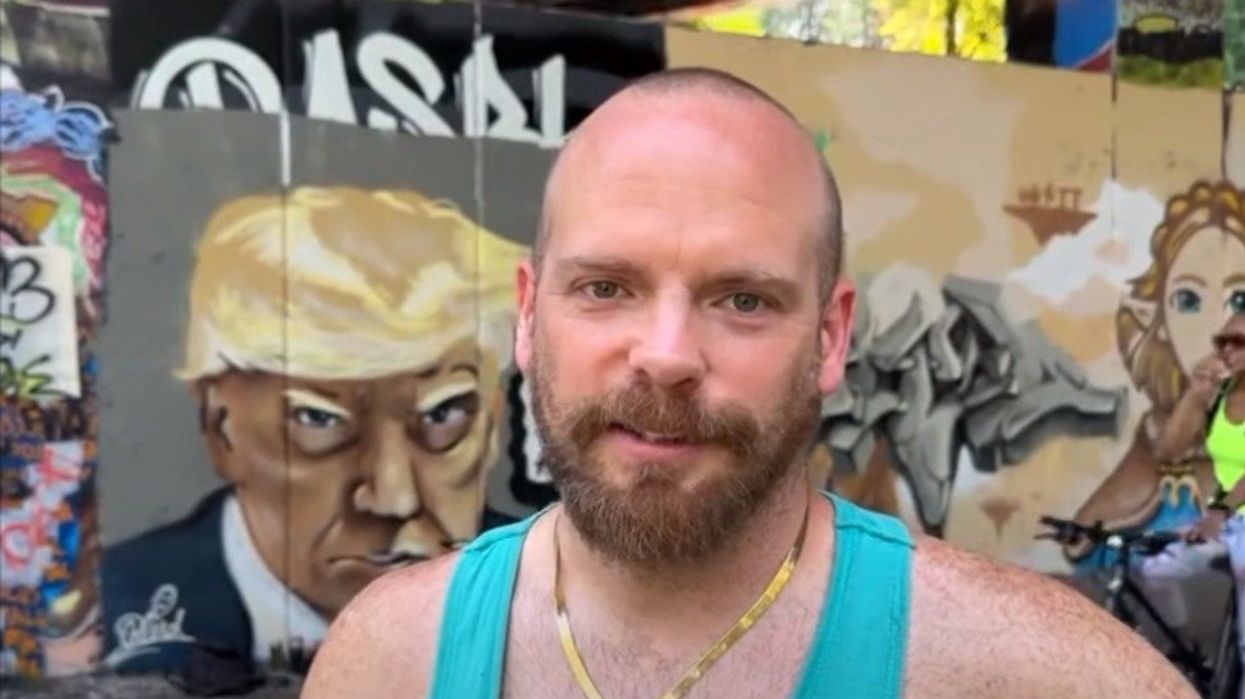Trump's Viral Chick-Fil-A 'Moment' Was Staged
As Donald Trump continues to try to make inroads with Black voters, his allegedly spontaneous viral visit to an Atlanta Chick-fil-A on Wednesday came at just the right time for the indicted ex-president as the patrons and staff, mostly young Black women, appeared to gush over him.
Fox News went wild over the encounter, calling it a “surprise visit.”
Video showed Trump casually declaring in the middle of the restaurant, with his arms opened wide, “Let me give you a hug,” and a young woman running over into his arms.
“Fox & Friends” co-host Lawrence Jones the next morning called it, “such an organic moment because you had all these people that obviously knew the president was there but were Trump supporters as well. Minorities.”
Jones then painted the stark “contrast” between President Joe Biden’s State Dinner with the Prime Minister of Japan on Wednesday evening, and the ex-president who just happened to walk into a Chick-fil-A and ordered 30 milkshakes. Jones appeared agitated by the Biden State Dinner, saying, “You got the current president, the ‘smoozing,’ State Dinner, you got the Clinton – why does another former president have to do a State Dinner with the current president? I think that’s strange.”
But it had not taken long for some to say it seemed staged.
“The odds of Trump walking into a Chick-Fil-A in a big city like Atlanta, and every single customer in there just happening to be a supporter, are infinitesimally small. The whole thing was obviously staged to ensure that only his supporters were inside,” observed the social media account for The Palmer Report just hours after the Chick-fil-A visit took place.
MeidasTouch Network on Friday reports, “Trump’s Viral Hug At Chick-fil-A Was With a MAGA Operative,” and notes the woman Trump supposedly spontaneously hugged, Michaelah Montgomery “is a ‘political consultant’ and former Georgia GOP intern.”
Former CNN commentator Keith Boykin, the co-founder of the National Black Justice Coalition, wrote: “I knew it! Trump’s Chick-fil-A stop was a staged photo op with Black Republican supporters. Michaelah Montgomery, the Black woman who told Trump that ‘we support you,’ actually runs a conservative group and worked with Candace Owens’s Blexit Foundation.”
Ron Filipkowski, editor-in-chief of MeidasTouch, explained, “Just like his fake union rally & lie about calling Ruby Garcia’s family, the Trump excursion to Chick-fil-A was a staged op with a political consultant who has done work with the GOP, Charlie Kirk & Candace Owens’ orgs.” Linking to their report, Filipkowski, an attorney and former Republican calls it a “pattern of fraud.”
The liberal PAC PatriotTakes reposted a Trump campaign video, added screenshots, and wrote, “These Trump photo ops are pre-staged with supporters prior to his arrival.”
Despite all this evidence, Friday afternoon Fox News continued to hype the two-day old “viral” event, with host John Roberts telling viewers, “That was a true retail politics moment there. Biden goes in to get ice cream, he grabs himself a double scoop and walks out. Trump goes in and buys everyone lunch.”
Watch the videos above or at this link.
Reprinted with permission from Alternet.












